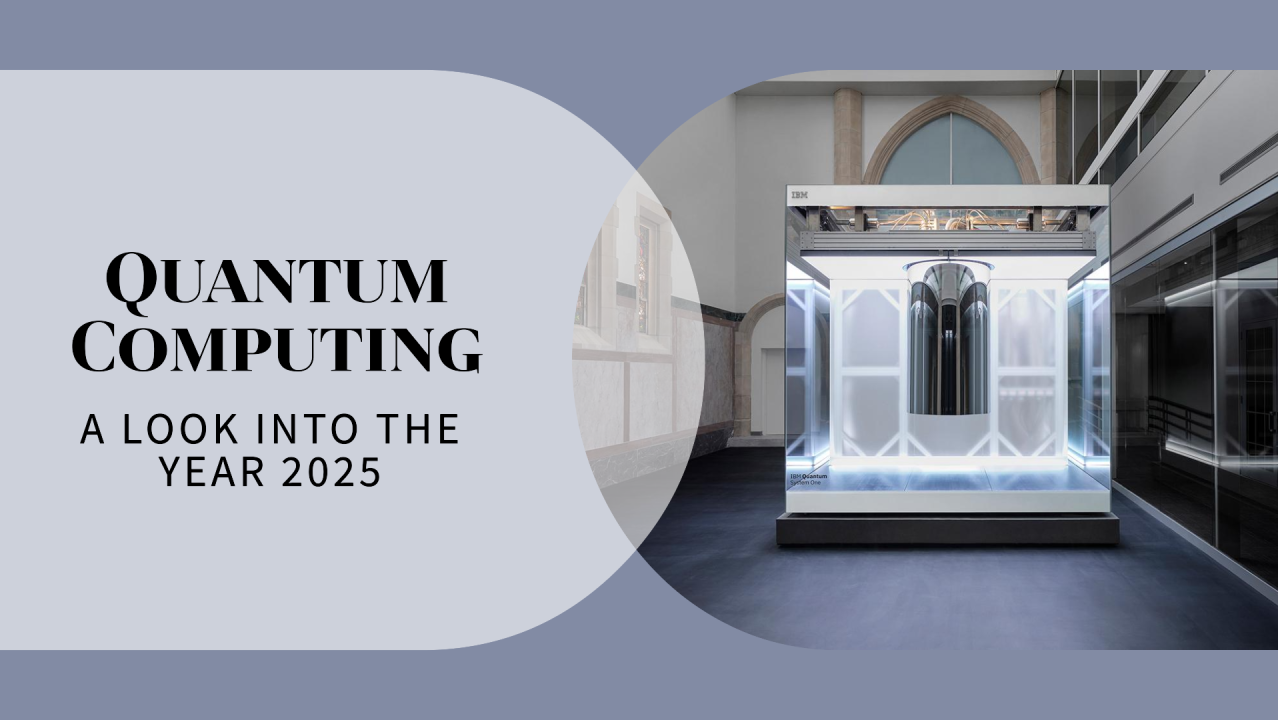Introduction
Quantum computing has been buzzing around tech circles for years. But in 2025, the noise seems louder than ever. So, the big question is: is it just more hype, or are we actually witnessing a tech revolution unfold?
Let’s unpack this tangled ball of quantum wires and see if 2025 is the year it finally delivers on decades of promises—or if we’re still stuck in the “it’s coming soon” loop.
The Basics of Quantum Computing
Classical vs Quantum Computing
Okay, think of classical computers like super-efficient librarians—they follow rules, store information in 0s and 1s, and process tasks linearly. Quantum computers? They’re like wizards playing 4D chess, doing multiple computations at once using qubits.
What Are Qubits?
Qubits are the building blocks of quantum computers. Unlike traditional bits (which are either 0 or 1), qubits can be 0 and 1 at the same time. It’s called superposition, and it’s as weird as it sounds.
Key Concepts: Superposition, Entanglement, and Decoherence
-
Superposition: One qubit can represent many states at once.
-
Entanglement: Qubits can become “linked” across distances—change one, and the other reacts instantly.
-
Decoherence: The ultimate buzzkill—quantum states are fragile and collapse when disturbed.
Evolution of Quantum Computing
Milestones Before 2025
Remember when quantum computers were just lab toys? In the early 2010s, they could barely handle math homework. Fast forward to 2020s: IBM, Google, and startups like Rigetti and IonQ pushed limits with better qubit stability and increased qubit counts.
Breakthroughs That Changed the Game
-
Google claimed quantum supremacy in 2019.
-
IBM rolled out a 127-qubit processor in 2021.
-
In 2023, advancements in error correction and photonic qubits turned heads.
Companies Leading the Charge
-
IBM: Probably the most vocal and transparent with its roadmap.
-
Google: Focused on hardware innovations.
-
Microsoft: Betting big on topological qubits.
-
Amazon, Intel, Honeywell: Not sleeping either.
Current Landscape in 2025
Commercial Quantum Devices – Fact or Fiction?
Quantum computers exist in 2025, but let’s keep it real—they’re not sitting in your backpack. Most are still experimental, but accessible via the cloud.
Cloud-Based Quantum Access
Thanks to platforms like IBM Quantum and Amazon Braket, you can actually run small quantum programs from your laptop—like renting a superpower for a few seconds.
Governments and Quantum Investment
Governments worldwide—U.S., China, EU, and India—have invested billions into quantum research. Why? Because whoever cracks it first may own the next tech arms race.
Quantum Computing Applications
Healthcare and Drug Discovery
Simulating molecules in quantum states is hard for classical computers—but a walk in the park (eventually) for quantum ones. This could mean faster drug development and precision medicine.
Cybersecurity: A Double-Edged Sword
Quantum computing could break today’s encryption—but it also promises quantum encryption, a virtually unhackable system. Scary and exciting, right?
Artificial Intelligence & Machine Learning
Quantum computing could turbocharge training models. Think ChatGPT, but 1,000x smarter and faster in theory (someday…).
Financial Modeling and Forecasting
Imagine processing every possible financial scenario at once—quantum could do that, making Wall Street even more complex and (maybe) accurate.
Challenges and Limitations
Scalability of Qubits
Getting more qubits isn’t the only problem—keeping them stable is even harder. Current systems require near absolute-zero temperatures to function.
Error Correction Nightmares
Quantum errors are like gremlins. They pop up unexpectedly and are super hard to fix. Error correction needs a ton of extra qubits to work reliably.
Hardware and Environmental Requirements
Quantum machines are divas—they need cryogenic fridges, vibration isolation, and no background noise. Not exactly plug-and-play.
The Hype Machine
Media Buzz vs. Scientific Reality
Every other article claims quantum is “changing everything.” The truth? It’s not quite ready for primetime. A lot of the buzz is still built on projections and theoretical models.
Unrealistic Timelines and Investor Expectations
Investors want results yesterday. But quantum timelines are more like “give us 10-20 years and maybe we’ll crack it.”
Reality Check – Where Are We Now?
What Quantum Computing Can Actually Do Today
Today’s quantum computers are great for:
-
Small optimization problems
-
Educational research
-
Proving theories
But you won’t be editing TikToks or gaming on one just yet.
Use Cases That Actually Work
-
Logistics optimization
-
Quantum chemistry simulations
-
Secure communications via quantum key distribution
The Road Ahead
Quantum Advantage – Are We Close?
“Quantum advantage” means a quantum computer does something better than any classical one. We’re seeing glimpses, but no true killer app yet.
What Needs to Happen Next?
-
Better error correction
-
Scalable, reliable qubits
-
More accessible development tools
-
More honest hype control
Conclusion
So… is quantum computing in 2025 hype or reality?
It’s a bit of both. The science is real. The progress is tangible. But the practical, widespread use? Still on the horizon. We’re walking toward a future where quantum might change the world—but we’re not there yet.
Still, keep your eyes peeled. Because when it hits… it’ll hit hard.
 FAQs
FAQs
1. What is the difference between classical and quantum computing?
Classical computing uses bits (0s and 1s), while quantum computing uses qubits that can be 0, 1, or both at the same time, thanks to superposition.
2. Is quantum computing dangerous for cybersecurity?
Potentially, yes. Quantum could break current encryption methods, but it also introduces new quantum-safe encryption standards.
3. Who are the biggest players in quantum computing?
IBM, Google, Microsoft, Amazon, Intel, and startups like IonQ and Rigetti are leading the race.
4. Can I use a quantum computer in 2025?
You can access quantum computers via the cloud, but their capabilities are still limited to niche use cases and research.
5. What does the future of quantum computing look like?
The next 5–10 years will be about scaling, stabilizing, and finding practical applications that can prove true quantum advantage.
